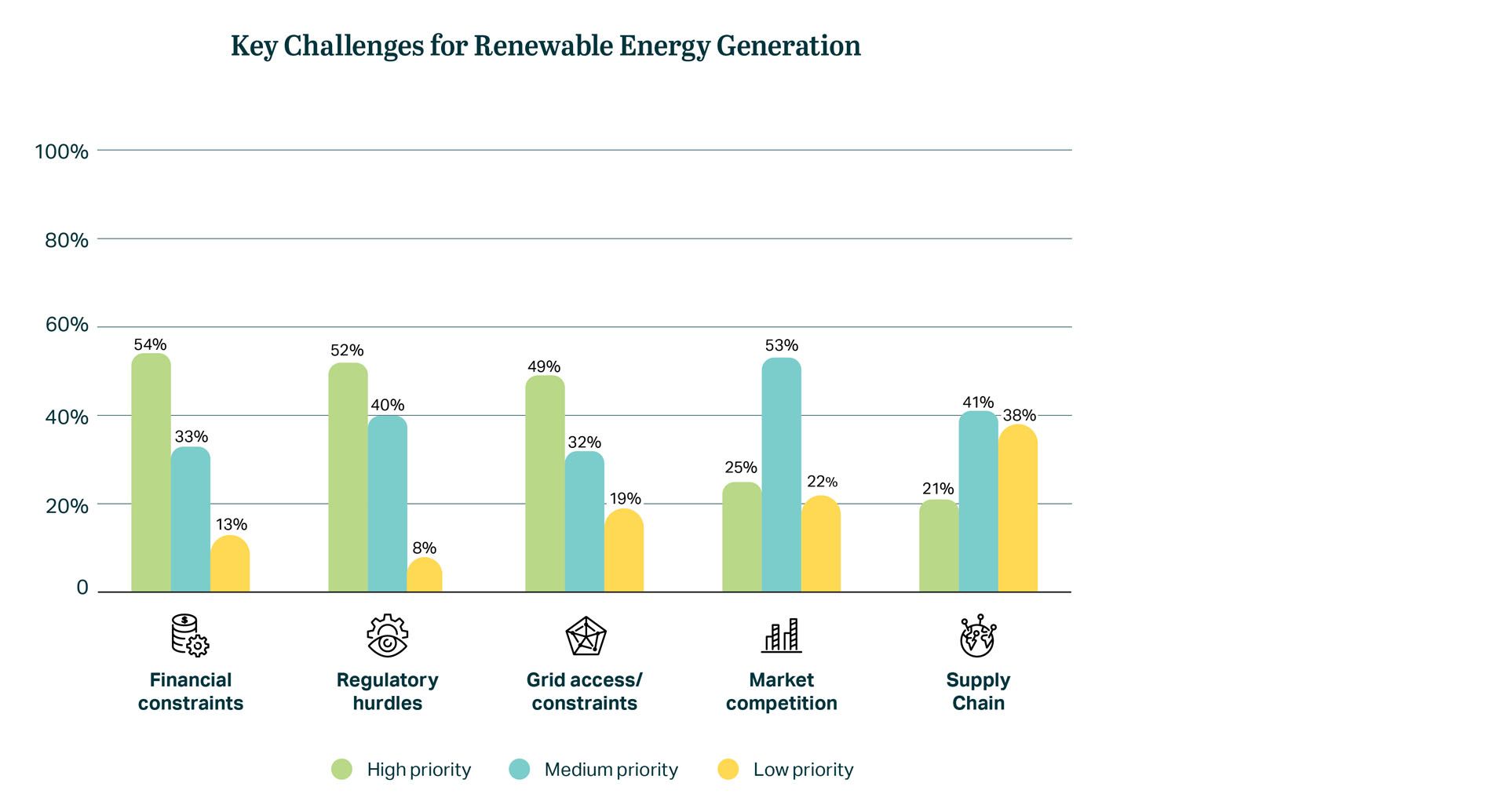New Zealand is accelerating its transition to a low-carbon economy with an ambitious focus on decarbonising energy, driven by both the need to address climate change and unlock greater economic opportunities. The government is committed to achieving net-zero emissions by 2050, a target that will require substantial investments in renewable energy capacity and supportive technologies.
To meet its 2050 climate targets, New Zealand must substantially increase its electricity generation capacity by harnessing its abundant renewable resources, including wind, solar, hydro, and geothermal energy. This expansion will require producing more electricity than is necessary to reach the net-zero goal.
When asked to identify the main challenges for new energy generation development, more than 75 percent of respondents cited financial constraints and regulatory hurdles as the most significant barriers. This reflects the early stages of many projects currently in the development pipeline. Developers are primarily focused on securing regulatory approvals, grid connections, and financing. High capital costs, regulatory uncertainty, grid access limitations, and market volatility were noted as key obstacles to the financial feasibility of renewable energy investments. Additionally, respondents highlighted grid access issues, pointing to the limited infrastructure and capacity to integrate new renewable energy sources as a major challenge.

Priorities for the next five years
Respondents identified expanding renewable energy capacity as New Zealand's top priority for the next five years, emphasising its critical importance. Enhancing energy storage solutions was ranked closely behind, with the need to ensure grid reliability when renewable sources like wind and hydro are unavailable. Energy efficiency and affordability were considered medium priorities, reflecting the need to balance long-term sustainability goals with businesses' immediate concerns about rising energy costs.
Onshore wind and solar were seen as the most viable and scalable renewable energy sources, given New Zealand's favourable geography, with both prioritised for expanding generation capacity. Geothermal and offshore wind were also considered but ranked lower.
Fuels and technologies for transitioning to renewable energy
Half of the respondents viewed natural gas as the most suitable fuel to support New Zealand's transition to renewable generation. It provides a reliable backup for intermittent sources like wind and solar. Hydrogen was also noted as an important enabler, particularly for industries and transport sectors, which are more challenging to electrify. While coal was seen as a less favourable option, the continued role of gas and thermal generation was considered essential for ensuring reliable, affordable energy during the transition.
Moving forward
Respondents emphasised the importance of local generation solutions, such as biofuels from forest by-products, and incentivising small-scale energy production to bolster grid stability. Investments in storage solutions and battery systems, both residential and industrial, were also identified as key to supporting long-term energy resilience. While New Zealand is poised to lead in renewable energy, continued use of natural gas and fossil fuels will play a crucial role in supporting the transition and ensuring a competitive economy.